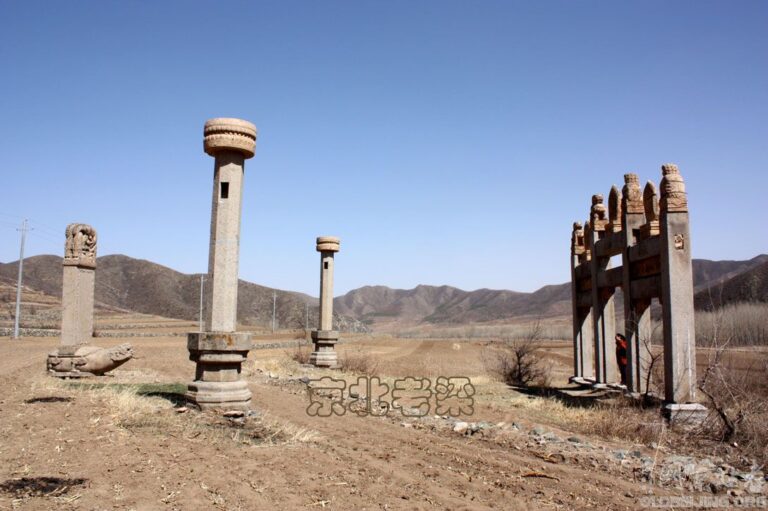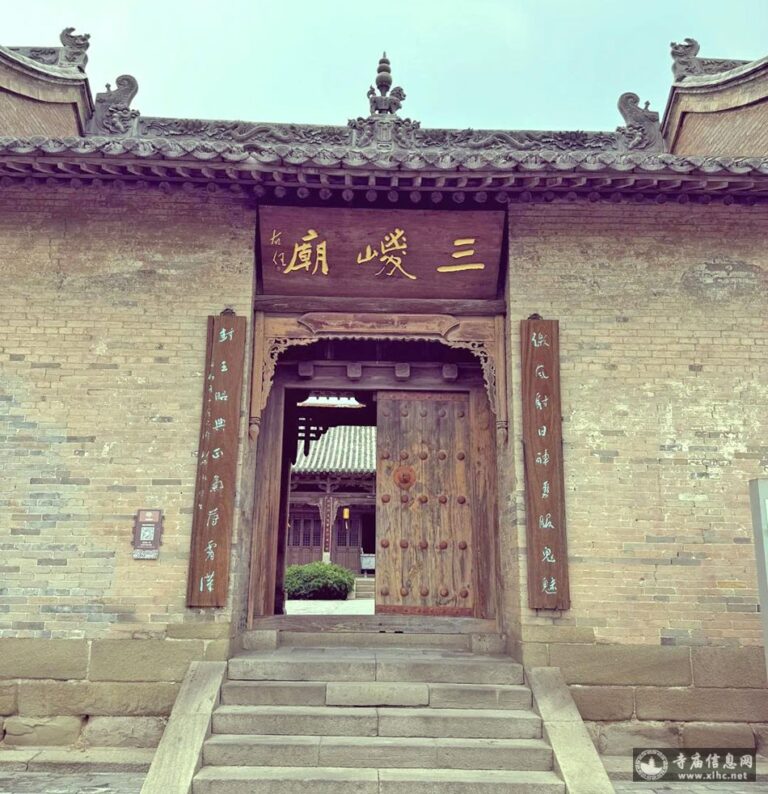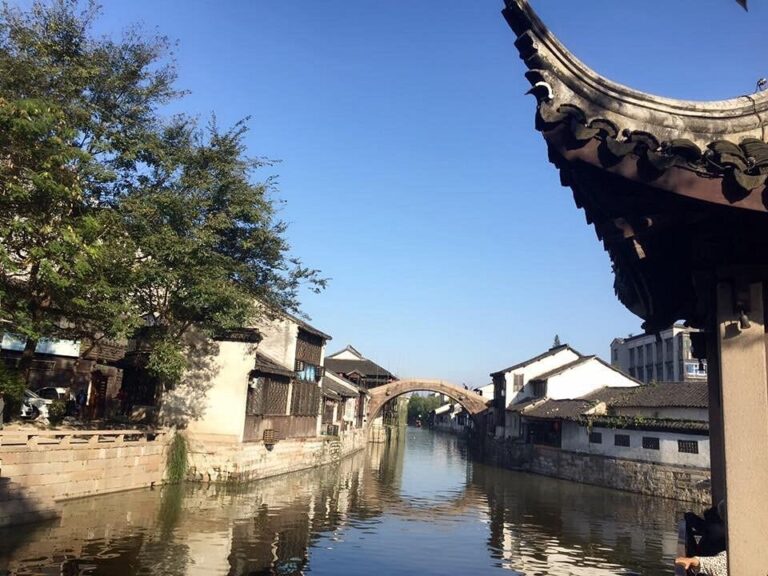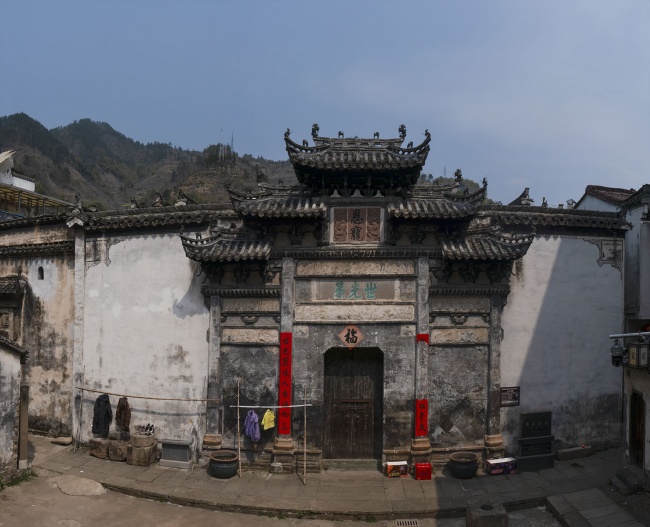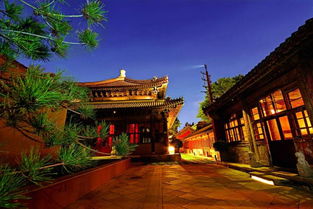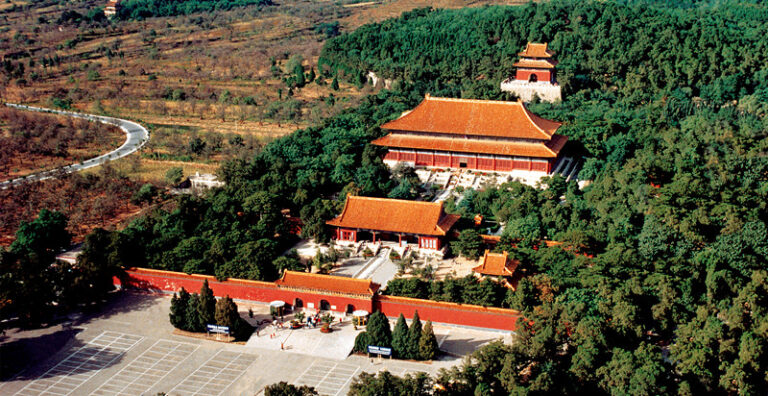Nanjing Qinhua Rijun: A Hidden Gem in Jiangsu’s Cultural Landscape
An Essential Guide to Visiting Nanjing Qinhua Rijun Liji Xiang Weiansuo Jiuzhi
In This Guide
- An Essential Guide to Visiting Nanjing Qinhua Rijun Liji Xiang Weiansuo Jiuzhi
- The Rich History of Nanjing Qinhua Rijun Liji Xiang Weiansuo Jiuzhi
- Main Highlights: What to See at Nanjing Qinhua Rijun Liji Xiang Weiansuo Jiuzhi
- Planning Your Visit: A Practical Guide
- Tickets, Hours, and Booking
- How to Get There
- Local Cuisine and Accommodation
- Frequently Asked Questions
- Final Thoughts on Your Trip
In the heart of Nanjing lies an important historical site that serves as a poignant reminder of a dark chapter in human history—the Nanjing Qinhua Rijun Liji Xiang Weiansuo Jiuzhi, commonly known as the Liji Alley Comfort Station. This site, now a museum, represents one of the few remaining locations directly linked to the atrocities committed during the Second Sino-Japanese War, specifically the Nanjing Massacre of 1937-1938.
Officially opened to the public in December 2015, the museum is housed in what was once a comfort station, a euphemism for the military-run brothels established by the Japanese Imperial Army. The facility was identified by surviving “comfort women,” including those who endured unimaginable suffering within its walls, marking it as an essential location for remembrance and education.
Visitors to this solemn site will encounter a complex narrative that intertwines personal stories of resilience and survival with broader themes of war, trauma, and reconciliation. The museum’s collection of artifacts, photographs, and testimonies creates an immersive experience that encourages reflection on the impact of war on individuals and society as a whole. As you walk through the exhibits, you are invited to engage with the history not only to remember the victims but also to foster dialogue about human rights and the importance of peace in our world today.
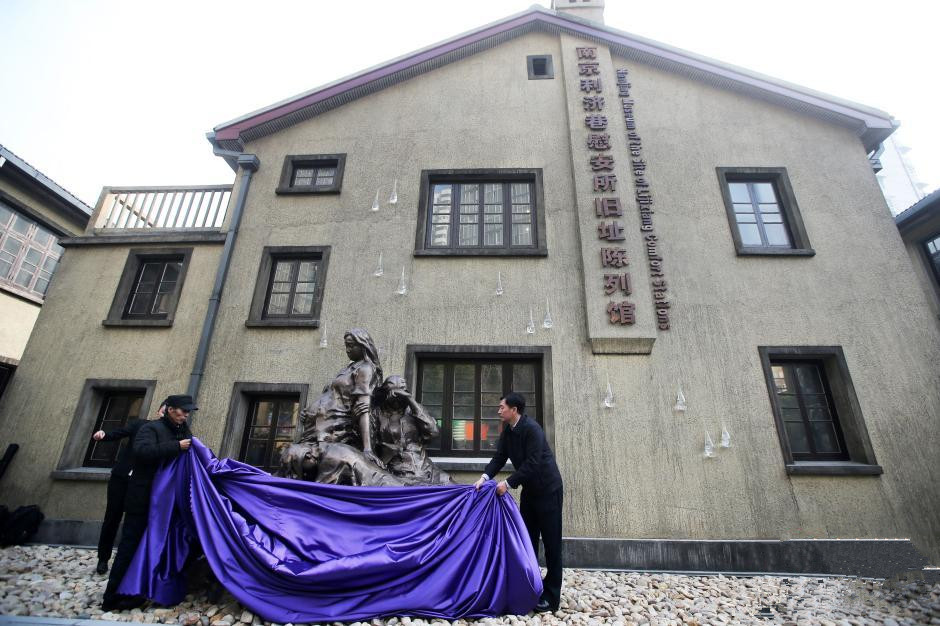
Nanjing Qinhua Rijun Liji Xiang Weiansuo Jiuzhi.
Exploring the Liji Alley Comfort Station is not just a journey into the past; it is a call to acknowledge the scars left by conflict and a reminder of our collective responsibility to ensure that such horrors are never repeated.
The Rich History of Nanjing Qinhua Rijun Liji Xiang Weiansuo Jiuzhi
The Nanjing Qinhua Rijun Liji Xiang Weiansuo Jiuzhi, known as the former site of the Nanjing Comfort Station, stands as a poignant testament to one of the darkest chapters in modern history. Located in the Qinhuai District of Nanjing, this site is part of the broader narrative surrounding the Nanjing Massacre, where, during the Second Sino-Japanese War, the Imperial Japanese Army committed widespread atrocities against Chinese civilians.
Established in the late 1930s, the Comfort Station system was intended by the Japanese military as a means to provide sexual services to its soldiers. The Nanjing site was one of the largest and most notorious, operating under the guise of a regulated establishment but functioning as a center of exploitation and violence. Following the capture of Nanjing on December 13, 1937, the Japanese military quickly instituted a Comfort Station at this location, designating it as “Dongyun Comfort Station.” It was here that thousands of women, many forcibly taken from their homes or deceived with false promises, were subjected to systematic sexual violence.
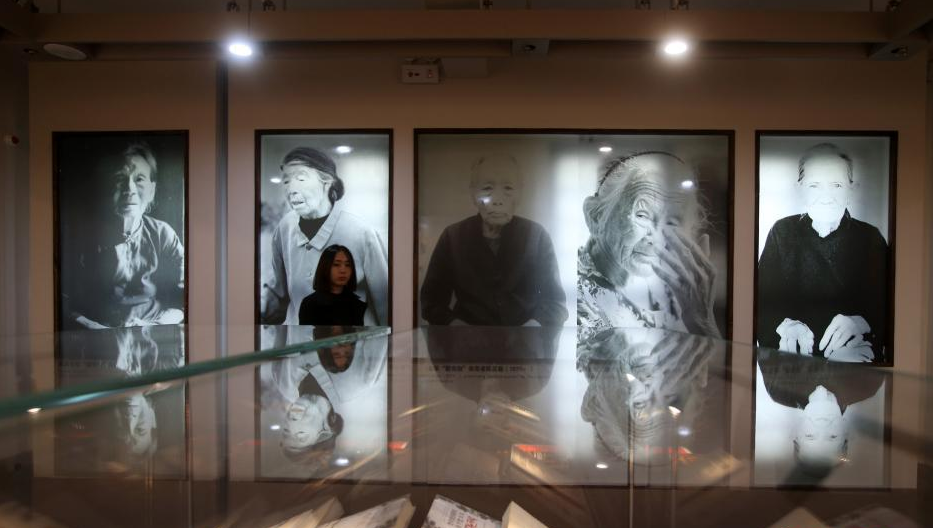
Nanjing Qinhua Rijun Liji Xiang Weiansuo Jiuzhi.
The buildings that comprise the site today were originally constructed between 1935 and 1937 as part of a larger residential complex named “Pu Qing New Village.” When the Japanese commandeered the property, it was transformed into a facility for the forced prostitution of women, who endured horrific conditions. This site remains one of the few locations worldwide that has been verified by surviving “comfort women,” with the last living witness identifying it as a site of her suffering.
In the years following the war, the historical significance of the Comfort Station and its associated crimes was largely ignored or downplayed. However, in the early 21st century, efforts to remember and memorialize the victims gained momentum. In 2003, scholars and survivors collaborated to raise awareness and endorse the recognition of the site. By 2014, the site was officially designated as a historical monument, and in December 2015, the Nanjing Qinhua Rijun Liji Xiang Weiansuo Jiuzhi Exhibition Hall was inaugurated.
Today, the memorial serves as an educational and commemorative space, with exhibits that detail the harrowing experiences of the women who were victimized there. The site not only highlights the atrocities of war but also stands as a powerful reminder of the need for historical justice and reconciliation. The Comfort Station’s history invites visitors to reflect on the profound impacts of war and the ongoing struggles for recognition and rights faced by survivors of sexual violence in conflict.
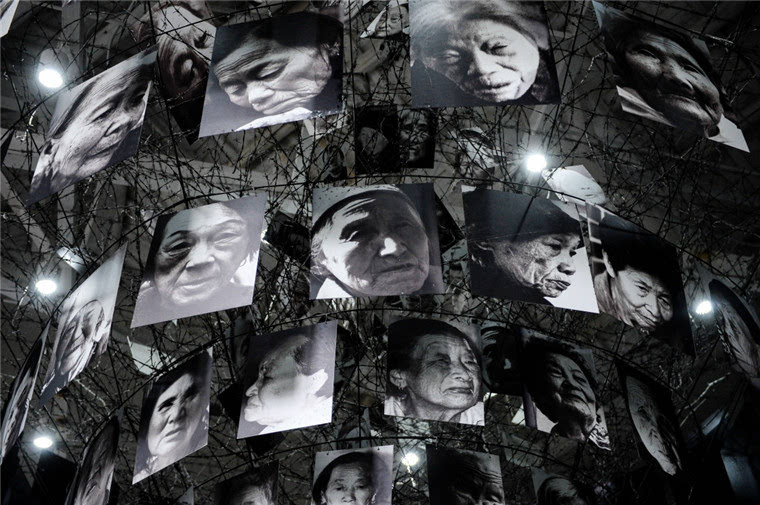
Nanjing Qinhua Rijun Liji Xiang Weiansuo Jiuzhi.
By preserving this chapter of history, the Nanjing Comfort Station site becomes a vital part of the collective memory, ensuring that the voices of the past are not lost and that the lessons learned continue to resonate in contemporary discussions about human rights and dignity.
Main Highlights: What to See at Nanjing Qinhua Rijun Liji Xiang Weiansuo Jiuzhi
The Nanjing Qinhua Rijun Liji Xiang Weiansuo Jiuzhi, also known as the Nanjing Comfort Women Memorial Site, is a poignant reminder of the atrocities that occurred during the Second Sino-Japanese War. Opened to the public in December 2015, this site stands as one of the few locations identified by surviving comfort women themselves, marking it as a significant historical landmark.
Key Highlights
-
Historical Significance: The memorial site is located in the heart of Nanjing and is recognized as the largest and best-preserved comfort station from the era of Japanese occupation. It serves as a vital testament to the suffering endured by countless women and is part of a broader narrative about the Nanjing Massacre.
-
Unique Designation: This site is distinguished as the only comfort station in Nanjing confirmed by a living survivor, Park Yong-shin, who identified it as the “Dongyun Comfort Station.” This adds a personal layer to the memorial, as it connects visitors directly to the lived experiences of the victims.
-
Exhibitions and Collections: The memorial showcases over 1,600 artifacts, including photographs, documents, and other historical materials that illustrate the grim reality of the comfort women system. Visitors can explore more than 400 exhibition panels that provide context and personal stories, deepening their understanding of this painful chapter in history.
-
Memorial Sculpture and Tear Wall: Upon entering the site, visitors are greeted by a powerful sculpture representing the comfort women, accompanied by a “Tear Wall” that conveys the emotional weight of their experiences. These artistic elements are designed to provoke reflection and remembrance.
-
Educational Focus: The memorial serves not only as a historical site but also as an educational resource. It aims to raise awareness about the comfort women issue and promote discussions on human rights and historical memory, encouraging visitors to engage with the past critically.
-
Visitor Information: Open daily from 9:00 AM to 5:30 PM (with last entry at 4:30 PM), the site requires prior reservation for entry. It is crucial for visitors to respect the solemnity of the location, maintaining a quiet atmosphere conducive to reflection.
Visiting the Nanjing Qinhua Rijun Liji Xiang Weiansuo Jiuzhi offers an opportunity to confront difficult historical truths and honor the resilience of those who suffered. It is a site of remembrance, education, and commitment to ensuring such atrocities are never repeated.
Planning Your Visit: A Practical Guide
Practical Guide to Visiting the Nanjing Qinhua Rijun Liji Xiang Weiansuo Jiuzhi
Visiting the Nanjing Qinhua Rijun Liji Xiang Weiansuo Jiuzhi, or the Nanjing Comfort Women Museum, is a profound experience that requires thoughtful preparation. This guide will help you navigate your visit, ensuring a respectful and informative experience.
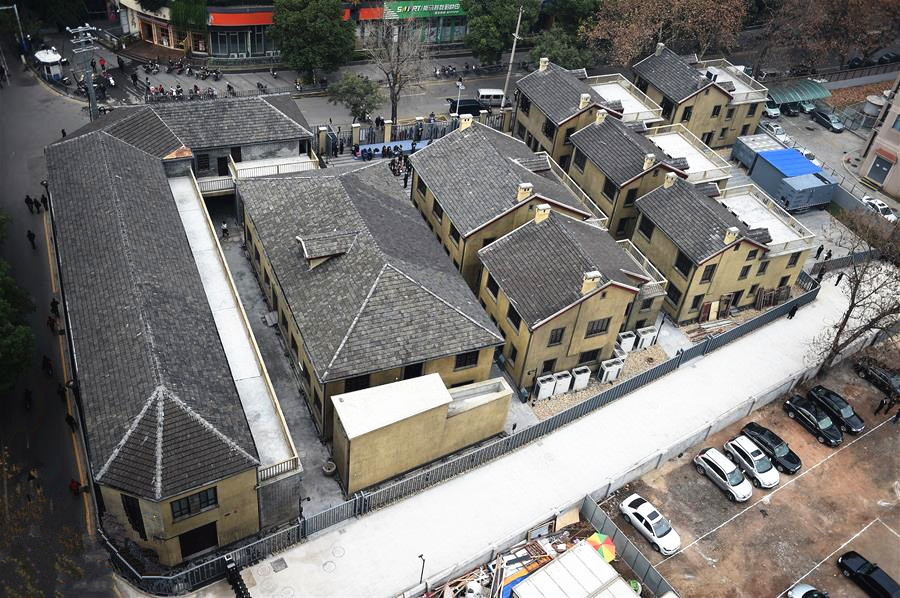
Nanjing Qinhua Rijun Liji Xiang Weiansuo Jiuzhi.
Location and Accessibility
The museum is located at 2-18 Liji Alley, Qinhuai District, Nanjing, Jiangsu Province, China. The site is easily accessible via local public transportation, including buses and taxis. The nearest metro station is about 1.5 kilometers away, making taxis or rideshare services a convenient option for those unfamiliar with the area.
Opening Hours
The museum is open from 9:00 AM to 5:30 PM daily, with the last admission at 4:30 PM. Note that the museum is closed every Monday, except on public holidays.
Admission
Entry to the Nanjing Comfort Women Museum is free. However, due to the sensitive nature of the exhibits, it is advisable to make a reservation in advance. Reservations can be made online through the museum’s official website or via WeChat.
Visiting Guidelines
-
Reservation Required: To manage visitor flow and protect the site, advance reservations are mandatory. You can reserve a spot up to seven days in advance.
-
Age Restrictions: Visitors must be at least 14 years old. Children under this age are not permitted entry.
-
Dress Code: Visitors are expected to dress modestly and appropriately, reflecting the solemnity of the site.
-
Behavioral Expectations: As this museum addresses a painful chapter in history, visitors are encouraged to maintain a respectful demeanor throughout their visit. Photography is generally allowed, but please refrain from using flash or causing disturbances.
-
Visitor Amenities: The museum offers free audio guides via WeChat to enhance your understanding of the exhibits. It is recommended to use headphones for a better experience without disturbing other visitors.
-
Prohibited Items: Smoking, eating, and bringing pets are strictly forbidden in the museum. Additionally, any items considered hazardous, such as fireworks or flammable materials, are not allowed.
Exhibition Highlights
The museum features numerous exhibits detailing the harrowing experiences of comfort women during the Japanese occupation. Key highlights include:
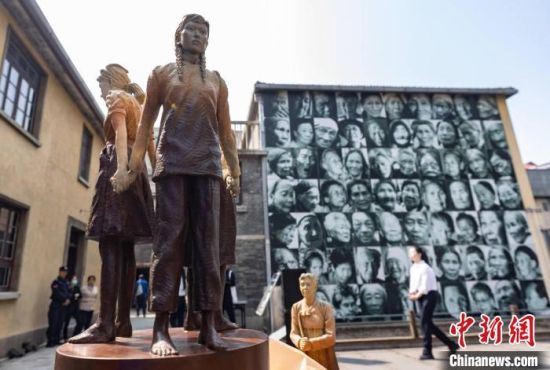
Nanjing Qinhua Rijun Liji Xiang Weiansuo Jiuzhi.
-
Historical Photographs and Artifacts: Over 1,600 artifacts, including personal items, documents, and photographs that illustrate the daily lives and struggles of the victims.
-
Interactive Displays: Engaging multimedia presentations that provide deeper insights into the historical context of the comfort women system.
-
Memorial Sculpture and Wall of Tears: These poignant installations serve as a memorial to the suffering endured by the victims, providing a space for reflection and tribute.
Nearby Attractions
While in Nanjing, consider visiting other significant historical sites such as:
-
Nanjing Massacre Memorial Hall: A short distance from the Comfort Women Museum, this memorial is dedicated to the victims of the Nanjing Massacre and offers additional context to the events of WWII.
-
The Ming Xiaoling Mausoleum: An important site of historical significance located in the vicinity, it showcases Ming Dynasty architecture amidst beautiful natural landscapes.
Conclusion
A visit to the Nanjing Qinhua Rijun Liji Xiang Weiansuo Jiuzhi is more than just a museum trip; it is a journey through a painful yet essential part of history. By preparing adequately and respecting the solemnity of the site, you can contribute to the remembrance and acknowledgment of the experiences of comfort women during wartime.
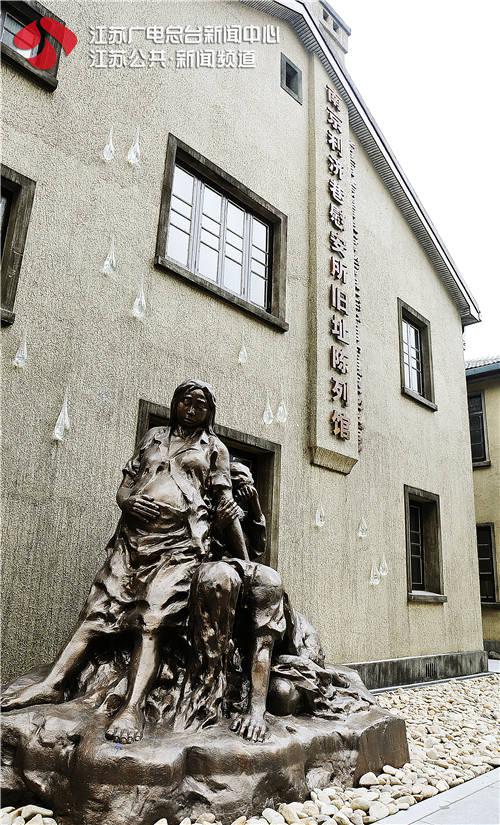
Nanjing Qinhua Rijun Liji Xiang Weiansuo Jiuzhi.
Tickets, Hours, and Booking
Visiting the Nanjing Qinhua Rijun Liji Xiang Weiansuo Jiuzhi (Nanjing Comfort Station Memorial) is a profound experience that immerses you in an important chapter of history. The memorial is open to the public, and entry is free of charge, making it accessible to all who wish to pay their respects and learn about the past.
Opening Hours
The memorial is open daily from 9:00 AM to 5:30 PM, with the last entry permitted at 4:30 PM. Please note that it is closed on Mondays, except during public holidays.
Reservation Requirements
To ensure a respectful and organized visit, the memorial implements a timed-entry reservation system. Visitors are required to book their visit in advance, which can be done online via their official WeChat account. Reservations can be made up to seven days in advance, allowing you to secure your preferred time slot.
Visitor Guidelines
- Age Restrictions: Visitors must be at least 14 years old.
- Dress Code: Attendees are encouraged to dress neatly and appropriately.
- Behavioral Conduct: Smoking and eating are strictly prohibited within the premises, as well as bringing pets and other potentially disruptive items.
- Audio Guides: A complimentary audio guide service is available via WeChat, enhancing your understanding of the exhibits. To maintain a considerate environment, it is recommended to use headphones or keep your device’s volume low.
Contact Information
For further inquiries or assistance, you can reach out to the memorial at +86-25-58598353. The staff is available to assist from Tuesday to Sunday, between 8:30 AM and 5:00 PM.
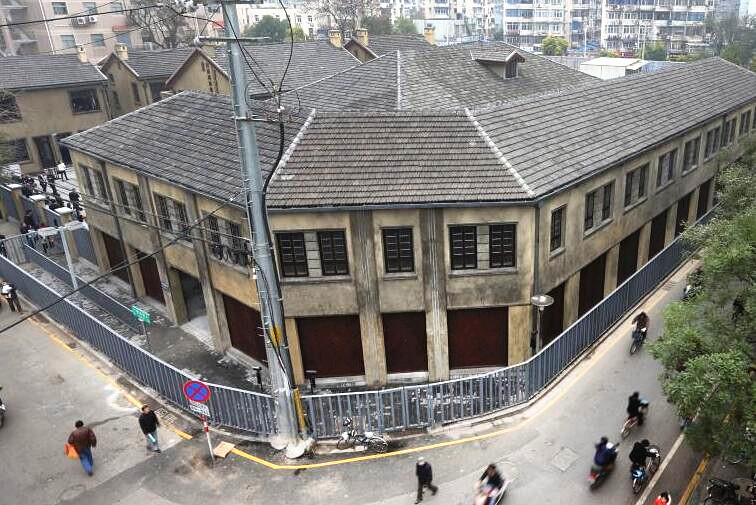
Nanjing Qinhua Rijun Liji Xiang Weiansuo Jiuzhi.
This memorial serves not only as a site of remembrance but also as an educational resource that sheds light on the tragic history of the Nanjing Massacre. A visit here is not just about witnessing history; it is about honoring the memory of those who suffered and ensuring that such atrocities are never forgotten.
How to Get There
To visit the Nanjing Qinhua Rijun Liji Xiang Weiansuo Jiuzhi (Nanjing Comfort Women’s Site), getting there is straightforward, thanks to the well-connected public transportation system in Nanjing. Here’s how to navigate your way to this significant historical site.
Public Transportation Options
- Subway:
- The nearest subway station is Sanshanjie Station on Line 1. From the station, you can take a taxi or walk to the site, which is approximately a 20-minute walk (around 1.5 kilometers).
-
Alternatively, you can also take Line 2 to Xuanwu Men Station and transfer to a bus or taxi.
-
Bus Services:
- Multiple bus lines service the area around the Comfort Women’s Site. You can take Bus No. 3, 34, 60, or 67 and alight at Liji Xiang Station. The site will be within walking distance from the bus stop.
-
Be sure to check the bus schedules as they may vary throughout the day.
-
Taxi Services:
-
Taxis are widely available throughout Nanjing. You can simply hail a taxi or use ride-hailing apps such as Didi Chuxing for convenience. The fare from central areas like the Nanjing Presidential Palace or Confucius Temple should be around 15-25 RMB, depending on traffic.
-
Bicycles and E-scooters:
- If you prefer a more active approach, Nanjing has a bike-sharing program that allows you to rent bicycles or e-scooters easily. You can use apps like Mobike or Ofo to find and rent a bike nearby. The ride from central locations will take roughly 30-40 minutes.
Accessibility
The Comfort Women’s Site is designed to accommodate visitors with mobility challenges. However, the surrounding streets may have uneven surfaces, so it’s advisable to plan your route accordingly. If you require assistance, consider traveling with a companion.
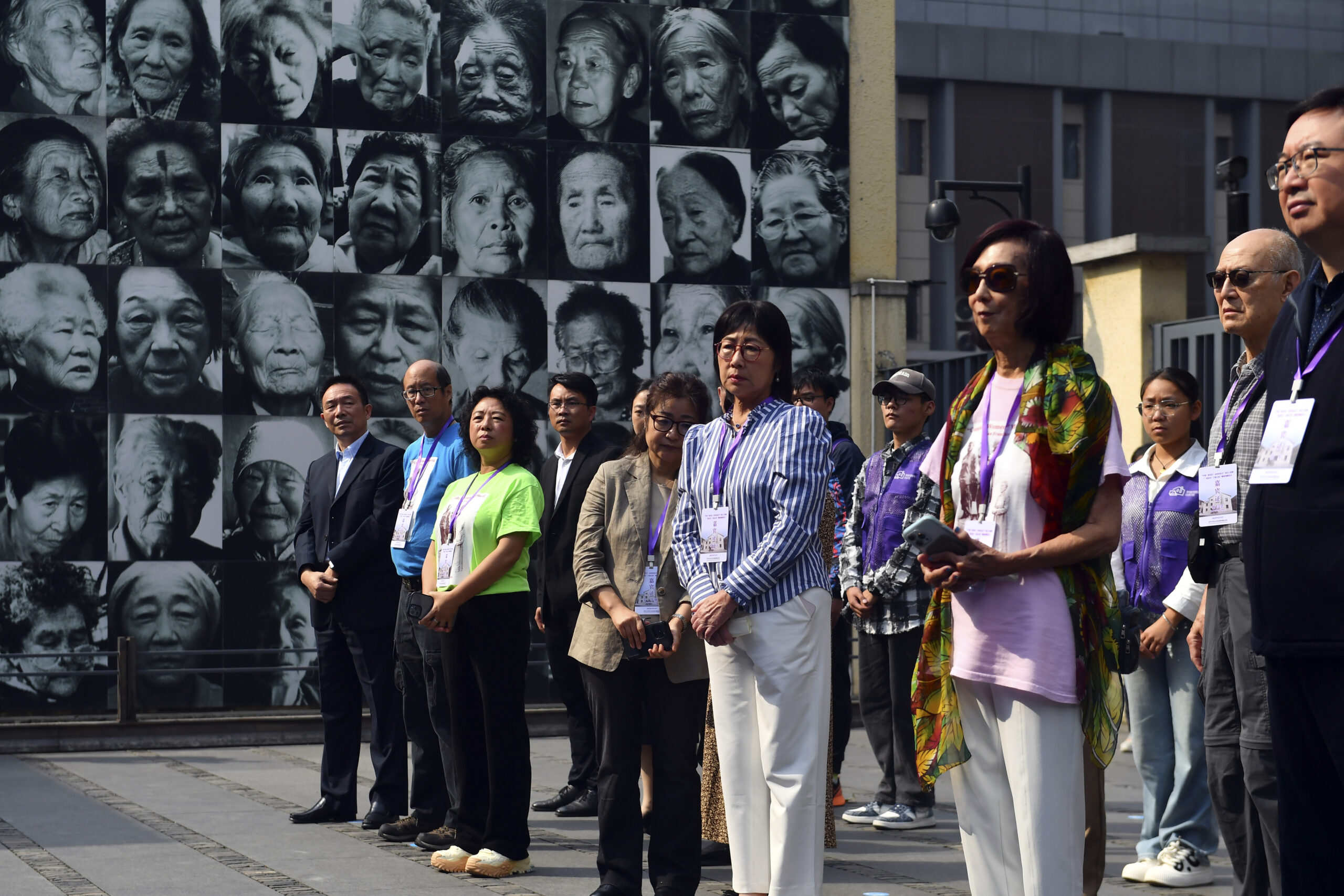
Nanjing Qinhua Rijun Liji Xiang Weiansuo Jiuzhi.
Additional Tips
- Opening Hours: The site is open from 9:00 AM to 5:30 PM, and last entry is at 4:30 PM. It is closed on Mondays, so plan your visit accordingly.
- Booking in Advance: Due to limited capacity and to ensure a smooth visit, it is recommended to make a reservation in advance. You can do this via their official website or by calling their visitor center.
- Guided Tours: If you’re interested in a deeper understanding of the site, consider booking a guided tour. They often provide valuable insights and historical context that enhance the experience.
With these transportation options and tips, reaching the Nanjing Comfort Women’s Site will be a seamless part of your visit to this poignant historical location.
Local Cuisine and Accommodation
When visiting the Nanjing Qinhua Rijun Liji Xiang Weiansuo Jiuzhi, also known as the Nanjing Comfort Women Memorial Site, visitors will appreciate not just the historical significance of this poignant location but also the surrounding culinary and lodging options. Here’s a guide to enhance your experience in this deeply reflective area.
Culinary Delights
Nanjing is renowned for its rich culinary heritage, and the area surrounding the memorial site offers a variety of dining options that cater to different tastes:
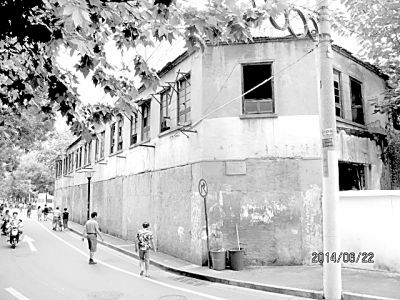
Nanjing Qinhua Rijun Liji Xiang Weiansuo Jiuzhi.
- Traditional Nanjing Cuisine:
- Dried Duck: A must-try specialty, you can find this iconic dish at local eateries such as Dried Duck Restaurant (鸭子店) nearby. The duck is marinated and then air-dried, resulting in a uniquely flavorful dish.
-
Nanjing Salted Duck: Another popular dish, seasoned with aromatic herbs, is served at restaurants like Jiangnan Salted Duck which specializes in this delicacy.
-
Street Food:
-
Explore the vibrant street food scene along Hanzhong Road or in local markets nearby. From scallion pancakes to spicy skewers, the options are endless and affordable.
-
International Cuisine:
- If you’re craving something different, there are several international restaurants offering options like Italian, Japanese, and Western-style meals. The Italian Restaurant near the memorial provides a cozy atmosphere for a more relaxed dining experience.
Accommodation Options
Choosing the right place to stay can enhance your experience while visiting the memorial site. Here are some recommended accommodations that are both comfortable and conveniently located:
- Luxury Hotels:
- InterContinental Nanjing: Situated a short drive from the memorial, this five-star hotel offers luxurious amenities, stunning views of the Yangtze River, and a variety of dining options on-site.
-
Hilton Nanjing: Another top-tier choice, featuring modern design and exceptional service, it is also close to many local attractions.
-
Mid-range Options:
- Jinling Hotel: This hotel combines comfort and value, with easy access to public transport and local dining. It’s a great base for exploring Nanjing’s historical sites.
-
Novotel Nanjing Central: Located in the city center, this hotel offers contemporary rooms and is within walking distance of several attractions.
-
Budget-Friendly Stays:
- Hostels and Guesthouses: For those on a tighter budget, consider places like Nanjing Backpackers Hostel, which provides a friendly atmosphere and essential amenities, making it a great option for solo travelers or groups.
- Local Guesthouses: Look for guesthouses in the old town area for a more authentic experience. These often provide a glimpse into local life and culture.
Tips for Your Visit
- Advance Booking: Given the emotional weight and educational value of the memorial, it’s advisable to secure your accommodations and dining reservations in advance, especially during peak travel seasons.
- Local Etiquette: When dining in local restaurants, it’s customary to share dishes, so consider ordering a variety to enjoy the communal aspect of dining.
Embrace the culinary and cultural richness of Nanjing while reflecting on the historical significance of the Qinhua Rijun Liji Xiang Weiansuo Jiuzhi. Enjoy your visit!
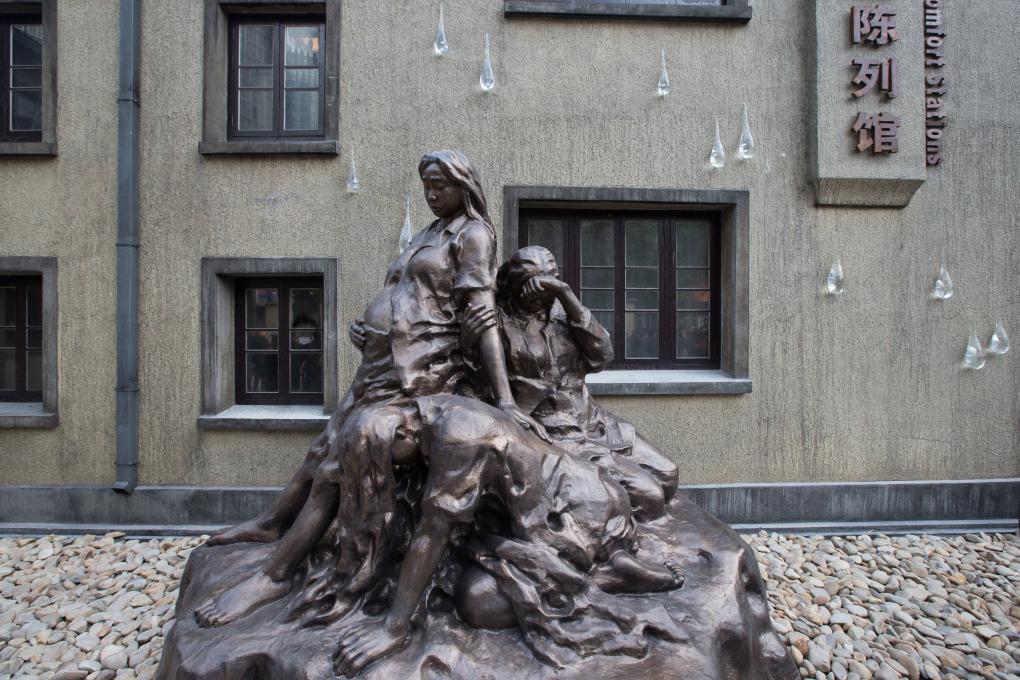
Nanjing Qinhua Rijun Liji Xiang Weiansuo Jiuzhi.
Frequently Asked Questions
Frequently Asked Questions
1. What is the Nanjing Qinhua Rijun Liji Xiang Weiansuo Jiuzhi?
The Nanjing Qinhua Rijun Liji Xiang Weiansuo Jiuzhi, also known as the Nanjing Comfort Women Memorial Hall, is a historical site commemorating the victims of the Japanese military’s wartime sexual slavery during the Second Sino-Japanese War. It is the only such site in Nanjing that has been confirmed by surviving victims.
2. When was the memorial officially opened to the public?
The memorial was officially opened to the public on December 25, 2015. It serves as a part of the broader Nanjing Massacre Memorial, which seeks to educate visitors about this dark chapter in history.
3. What are the visiting hours and days for the memorial?
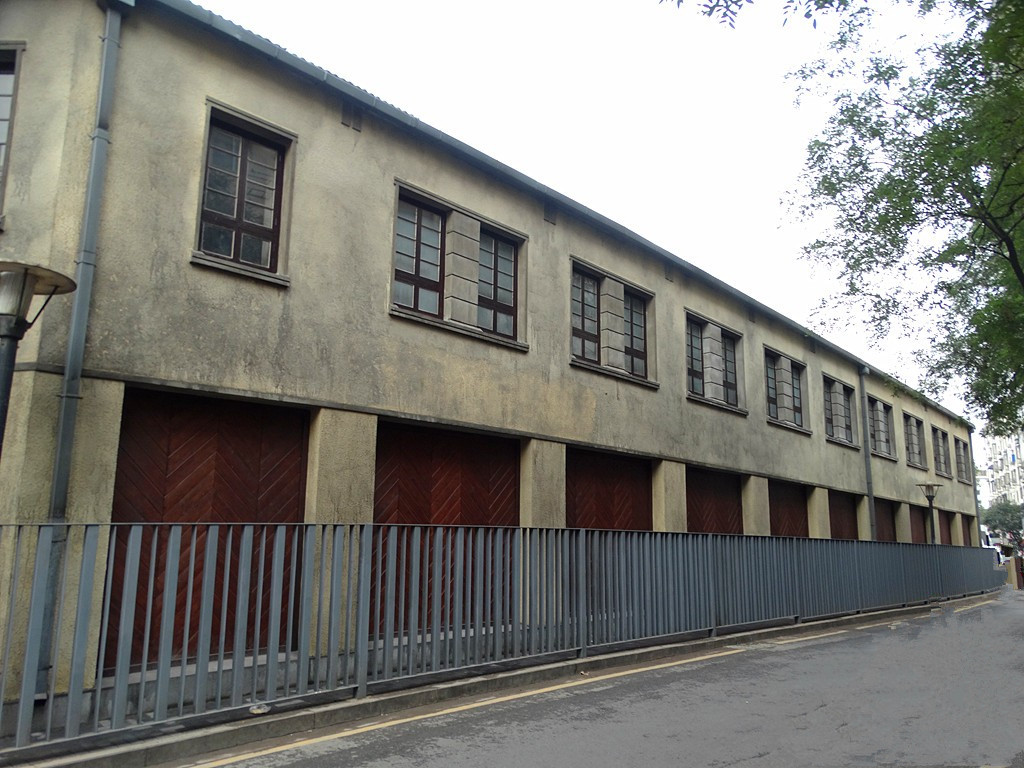
Nanjing Qinhua Rijun Liji Xiang Weiansuo Jiuzhi.
The memorial is open from 9:00 AM to 5:30 PM, with the last admission at 4:30 PM. It is closed on Mondays, except for public holidays.
4. Is there an admission fee to visit the memorial?
No, entry to the memorial is free. However, prior reservation is required due to limited visitor capacity.
5. How can I make a reservation to visit?
Reservations can be made online through the memorial’s official website or via WeChat. Reservations are available for up to seven days in advance, and visitors must provide a QR code and identification upon arrival.
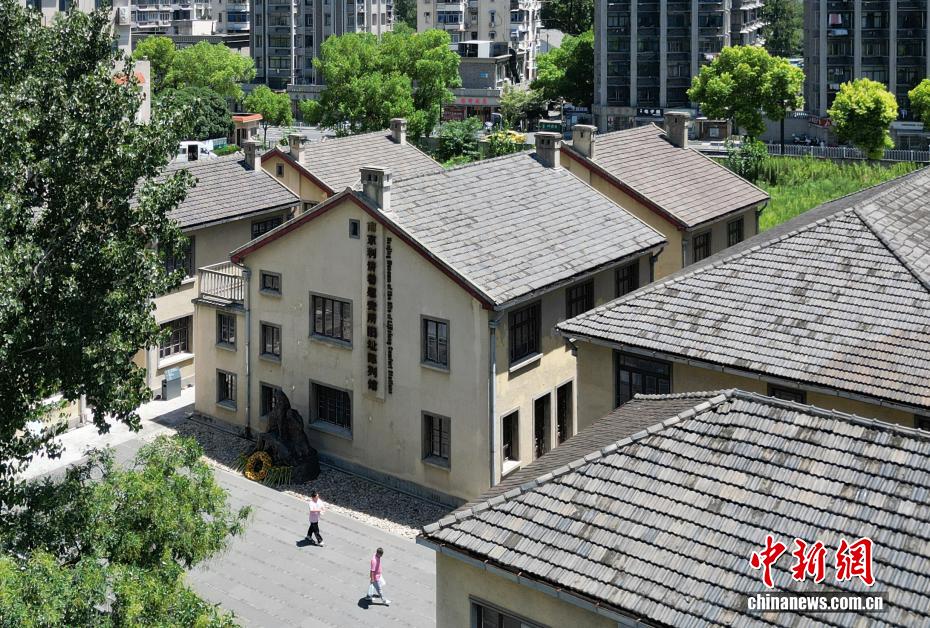
Nanjing Qinhua Rijun Liji Xiang Weiansuo Jiuzhi.
6. Are there any restrictions or guidelines for visitors?
Yes, visitors must be at least 14 years old and are encouraged to dress appropriately. The memorial strictly prohibits smoking, eating, and bringing pets. Additionally, visitors are advised to be respectful, as the site is a place of remembrance.
7. What facilities are available at the memorial?
The memorial features exhibition halls displaying over 1,600 artifacts, photographs, and panels that document the history and experiences of the victims. There are also audio guides available via WeChat to enhance the visitor experience.
8. How can I learn more about the history presented at the memorial?
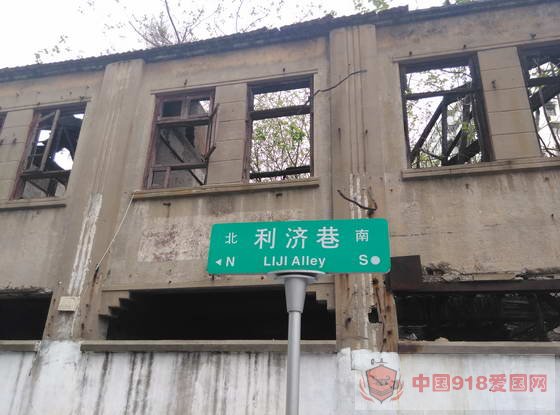
Nanjing Qinhua Rijun Liji Xiang Weiansuo Jiuzhi.
The memorial provides detailed exhibitions on the comfort women system, the events of the Nanjing Massacre, and the experiences of survivors. Visitors can engage with the exhibits and request educational resources for a deeper understanding of this historical context.
Final Thoughts on Your Trip
Visiting the Nanjing Qinhua Rijun Liji Xiang Weiansuo Jiuzhi offers a profound and moving experience that transcends mere tourism. As one of the few surviving sites directly linked to the tragic history of comfort women during the Second Sino-Japanese War, this memorial serves as both a somber reminder of the atrocities committed and a testament to the resilience of the human spirit. The exhibits not only present harrowing accounts of suffering but also celebrate the strength and courage of survivors who bravely confront their painful past.
In a world that often seems consumed by conflict, the Liji Xiang site stands as a beacon for peace and reconciliation. It invites visitors to reflect on the importance of memory and understanding in preventing such horrors from recurring. As we walk through the halls filled with poignant artifacts and narratives, we are reminded of our shared humanity and the need for compassion in the face of adversity.
Whether you are a history enthusiast, a student of human rights, or simply a traveler seeking to understand the depths of human experience, a visit to Nanjing’s Liji Xiang Weiansuo Jiuzhi will leave an indelible mark on your heart and mind. It is a call to honor the past, advocate for justice, and pave the way for a more peaceful future.
